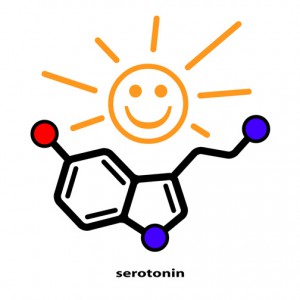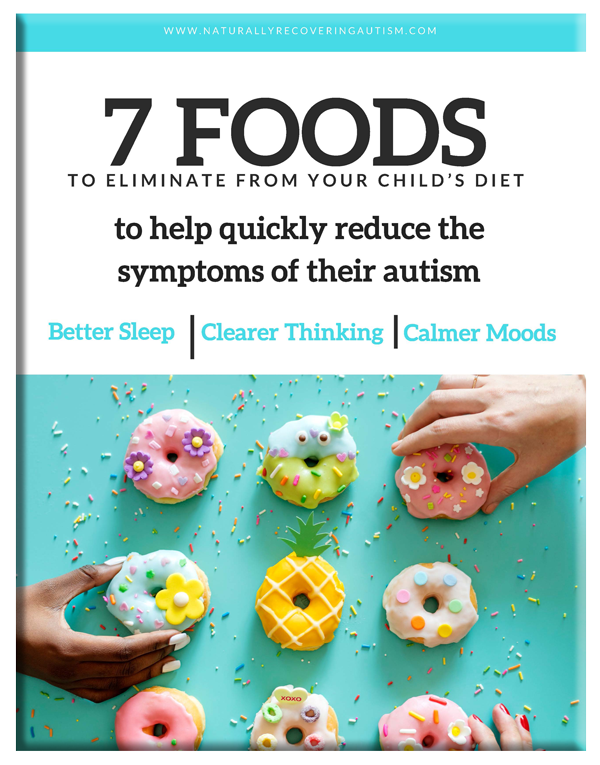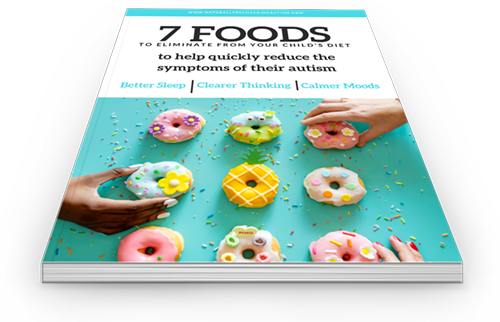 According to the World Health Organization (WHO), in 2021, depression is a common illness worldwide. Approximately 280 million people in the word have depression. At its worst, depression can lead to suicide.
According to the World Health Organization (WHO), in 2021, depression is a common illness worldwide. Approximately 280 million people in the word have depression. At its worst, depression can lead to suicide.
The Center for Disease Control (CDC) reports that 7.1% of children aged 3-17 years (approximately 4.4 million) have diagnosed anxiety, and 3.2% of children aged 3-17 years (approximately 1.9 million) have diagnosed depression. The percentage of adults who experienced any symptoms of depression was highest among those aged 18–29 (21.0%), followed by those aged 45–64 (18.4%) and 65 and over (18.4%), and lastly, by those aged 30–44 (16.8%). Women are twice as likely than men to experience mild, moderate, or severe symptoms of depression. In teens, the percentage doubles between the ages of 14 and 17.
Adolescents with mental health conditions are particularly vulnerable to social exclusion, discrimination, stigma (affecting readiness to seek help), educational difficulties, risk-taking behaviors, physical ill-health and human rights violations. Globally, it is estimated that 1 in 7 (14%) 10-19 year-olds experience mental health conditions, yet these remain largely unrecognized and untreated.
Actual depression is more than feeling sad. True depression is when the sadness is prolonged and effects everyday life. Feeling a strong sense of anxiousness, fearfulness, worry, poor concentration and excessive guilt are also signs of depression.
What contributes to the symptoms of depression?
Depression results from a complex interaction of social, psychological, and biological factors. Environmental toxins, as well as physical or emotional trauma all contribute to the symptoms of depression either directly or indirectly.
Neurotransmitters are the brain’s messengers. The surge in hormones during different cycles of life effects the levels of neurotransmitters, which in turn effect different parts of the brain and its functions. This is commonly seen in the teen years, in women during post-partum, and in especially stressful times during anyone’s life such as a change of or loss of employment, loss of a spouse, or during a household move. The COVID pandemic has also resulted in higher numbers of people experiencing depression. Isolation is a strong factor. The stress hormone cortisol depletes necessary enzymes in the body that help build serotonin, the king of neurotransmitters. It is also common for people to self-medicate with alcohol or drug use.
Selective serotonin re-uptake inhibitors (SSRIs) are the most commonly used class of antidepressants in both children and adults.13 While only a few SSRIs are FDA-approved for pediatric indications, the lack of FDA approval is typically related to a lack of sufficient testing in randomized controlled trials (RCTs) for specific pediatric indications.
Mold
Mold Biotoxins affect multiple systems of the body including the hormonal system. depression is a common symptom of this issue and is more common than one would think. Mold must be properly eradicated from your home, and it must be worked with correctly to stop the chronic inflammatory response it triggers in the body.
Serotonin
Neurotransmitters are brain messengers. Serotonin is called the king of neurotransmitters because it is the neurotransmitter most involved in the cause of multiple medical and psychiatric problems. 
Inflammation reduces tryptophan, which is needed to build serotonin. Serotonin is prone to disruption from many environmental factors including mercury toxicity. It can also be disrupted by imbalance in the mucosal lining of the intestines. Serotonin receptors in the GI system play a critical role in irritable bowel syndrome (IBS).
There are cells in the stomach, small intestine, and large intestine called enterochromaffin (EC) cells. They hold 95% of the body’s serotonin. IBS and its symptoms of abdominal pain may be due to hypersensitivity of the GI tract to normal stimuli. Disturbances in the serotonin pathway and a direct impact on the central nervous system can create behavioral disturbances such as anxiety and depression. The gut must be healed. Removing the 7 top inflammatory foods is the best place to start.
There are ten neurotransmitters. Each one has a special function. Neurotransmitters that are in the brain are mostly made of amino acids. Amino acids are made from proteins, so eating protein foods will raise levels of neurotransmitters. Some good sources of protein are eggs, poultry (especially turkey), seafood, beans, and nuts.
Anxiety, stress and chronic pain can all lead to depression. A body needs good nutrient absorption, protein synthesis, and a healthy intestinal lining for a healthy mental state. What most people do not realize is that diet plays a big role. If your gut is not healthy, then your brain and the neurotransmitters that assist mood are not plentiful enough to do their jobs. This is commonly seen in children on the autism spectrum, with ADD, anxiety, irritability, and more. You can imagine what an impact gut dysbiosis has on the release and regulation of serotonin. It is no wonder our kids usually have issues associated with serotonin imbalance.
Common Symptoms Of Serotonin Imbalance
Symptoms associated with low serotonin levels in the brain are headaches of all kinds, including migraines, extreme fatigue, anxiety, aggression, ADD, carbohydrate cravings (including alcohol), lack of satiety with food, chronic pain, chronic fatigue, epilepsy, hyperactivity, insomnia (an inability to fall asleep or stay asleep), muscle twitching, Restless Leg Syndrome, low pain tolerance, obesity and other eating disorders, obsessive compulsive disorder, hyper-focus, panic disorders, premenstrual symptoms, schizophrenia, seasonal affective disorder, depression, suicidal thoughts and behavior, and night terrors. I discuss this extensively in my book, Naturally Recovering Autism.
Sadly, those who take medication often get worse, which can lead a depressed person to more depression, and sometimes even to suicidal thoughts. The good news is that there are natural supplements that can work better than medication.
Natural Resources To Help Reduce Depression
SEROTONIN AND 5-HTP
The best way to build serotonin is by supplementing with 5-hydroxytryptophan (5-HTP). This is the amino acid tryptophan in its already-converted form. Tryptophan must be converted in the body to make 5-HTP. The 5-HTP then makes serotonin, so taking 5-HTP cuts out a middle step. 5-HTP is as powerful as prescription medications for depression, behavioral and mood issues, and sleep disorders, but it is much safer. 5-HTP also helps to build pain relieving endorphins.
In order for tryptophan to be converted into 5-HTP, it must be broken down in the digestive tract, and more so, in the liver and the brain. Factors that inhibit the development of serotonin from tryptophan to 5-HTP include:
- Stress which causes cortisol levels to rise, then depletes the liver of the enzymes needed to make 5-HTP
- A weak liver
- Poor digestion
- Vitamin B deficiency, especially B6 and niacin
- Low magnesium
- Genetics
- Improper insulin regulation
About 70% of 5-HTP is taken up into the brain versus only 3% of tryptophan. 5-HTP bypasses the liver, so the liver is not needed to convert it into serotonin and serotonin is easily built and quickly reaches the brain.
In the case of depression, if the benefits of 5-HTP begin to reduce, it may be due to a drop in dopamine and norepinephrine. In this case, adding the supplement L-tyrosine can help. Do not take L-tyrosine to build dopamine if you suspect your child has PANS. PANS can cause the over-production of dopamine, so in this case, we do not want to create more.
The supplements known to be most helpful for depression are:
- Omega 3 fatty acids (fish oil)
- 5HTP (Take away from food for best results)
- SAMe (Take away from food for best results)
- L-tyrosine (Take away from food but do not take if you suspect PANS)
- B vitamins (especially Methyl B12)
- Vitamin D3
It can take up to three weeks for natural supplementation to offer noticeable changes. If desired results do not show after this period of time, and healthy diet is in practice, you may need to increase your dosage levels.
Note: As with anything, and if you are taking antidepressant drugs or any other medications, consult your practitioner. If necessary, seek the help of a naturopathic doctor who can test to determine hormone and neurotransmitter levels.
The Effectiveness of Subconscious Work
Psychotherapy has a person talk about their issues but is often focused on tools at a conscious level and one has to follow through. Therapies that work with the subconscious, or underlying issues can be far more effective. A past event from even decades prior may seem uneventful but can continue to sabotage our current life experiences.
Subconscious therapies such as E.M.D.R. help to free trapped emotions in the nervous system due to past or present emotional experiences being withheld. Eye Movement Desensitization and Reprocessing (EMDR) is a gentle, non invasive therapy based on bilateral stimulation, (right, left), of the nervous system. It is often done through visual stimulation. However, E.M.D.R. is also effective by stimulating other parts of the body such as through hearing from right to left with sounds in headphones, or in the hands through tapping or hand held stimulators.
Craniosacral therapy can be very effective against depression. The bone behind the eyes is called the Sphenoid. It is easily imbalanced and when it is it imbalances the pituitary which effects hormone levels and contributes to depression.
Neurofeedback helps people of all ages to exercise their brainwaves and strengthen their mind to promote symptom reductions. It addresses symptoms related to stress, anxiety, attention, depression, anger management, sleep issues, and hyperactivity.
Tapping acupressure points to assist emotional balancing, also sometimes referred to as Emotional Freedom Technique or EFT, is based on a combination of Chinese medicine (acupressure or meridian points), and Western psychotherapy. When stimulated, these acupressure points send signals to the stress centers of the brain. These signals bypass the thinking portion of the brain, and reach the subconscious. Multiple studies have been done on the effects of EFT, some even by the prominent Harvard Medical School. Learn more and watch a video tutorial on Tapping Acupressure Points To Assist Emotional Balance.
Use Emotion Code work to release old trapped emotional patterns from yourself and your child to clear the path to autism recovery, and much more. The Emotion code was developed by Dr. Bradley Nelson, one of the world’s foremost experts in the fields of bio-energetic medicine and energy psychology. Learn how the subconscious mind surrounds areas of the body, including the heart, to protect us in podcast #9, Clearing Trapped Emotions with the Emotion Code with Dr. Bradley Nelson.
See a full list of additional calming techniques and support supplements from:
Podcast #136, “7 Tips To Help Create Calm For Children with Autism and Their Parents”
Podcast # 18, “5 Steps To Apply A Positive Mindset and Draw More of What You Want Into Your Life”
Podcast #119, How To Use Your Brain’s Magnet To Create Better Outcomes With The Reticular Activating System
Podcast #121, How To Remove Protective Heart Walls To Allow Healing With Dr. Bradley Nelson
Podcast #40, How to Calm The Stress Response: HPA and the Effects of Cortisol on Health and Behavior
Podcast #78, At-Home Fun To Help Calm Sensory Needs
Podcast #83, Neuroquant is a technically advanced way to scan the brain for images that can offer valuable information on specific areas of the brain’s volume to find lower functioning levels which assists in knowing where it is imbalanced. This can help determine supplemental needs too.
Take Action Against Depression
 Actions you can take to help reduce depression:
Actions you can take to help reduce depression:
- Exercise: 30-60 minutes of aerobic exercise will increase serotonin levels in the brain.
- Get 8 hours or more of sleep per night.
- Protect yourself from electromagnetic radiation (EMF’s)
- Help balance hormone levels with liver support
- Mold biotoxins can create depression. They disrupt hormone levels so be sure to remove any mold from your home.
- Learn about candida. Candida imbalances hormones and disrupts the gut. Begin balancing with the right diet.
- Parasites
- Lyme disease
- PANS
- Heavy metals, especially mercury
- Eat olive oil, coconut oil and avocados
- Eat organic protein
- Reduce and then remove processed carbohydrates and sugar from your diet
- Keep blood sugar balanced, and learn how it effects sleep.
- Meditate
- Give and receive love to increase oxytocin, the feel good chemical, (loving your animals can be greatly helpful!).
- Increase indoor light in the winter months.
- Don’t watch scary movies or play anxiety provoking video games, especially before bed.
Diet makes a HUGE difference!
Get your FREE foods guide to the top 7 foods to avoid for calmer behaviors,
clearer thinking, improved sleep, and more peace in your life!

Follow me on, Facebook.
The content herein is not meant to diagnose, treat or be a substitute for medical advice. Seek a qualified practitioner when necessary.
Get Your Free Food Guide!
Quickly Reduce Your Child’s Symptoms of Autism by Eliminating 7 Foods Most People Consume Daily!
The first crucial step of autism recovery is to begin restoring health to the gut and the immune system.
The health of the gut is directly linked to the health of the brain and therefore to the symptoms of autism. In fact, 80% of the immune system comes from the gut so if the gut is not healthy, then the brain can’t thrive, and the immune system is compromised. It’s a vicious cycle, but thankfully, it’s one that we can put an end to by first eliminating harmful foods.
- Harmful Foods: Identify the foods that worsen autism symptoms and understand the science behind their impact.
- Smart Food Choices: Learn about easy dietary swaps that can significantly enhance sleep, clarity of thought, and emotional well-being.
- Practical Implementation: Get valuable tips on how to implement these dietary changes easily and effectively.
This is for informational purposes only and is not meant to diagnose or treat. Every child’s level of recovery is different. No two people are the same. It is never implied that all children will have the same outcome. Results are all based on individual biology and the work that is done. This process takes time and various steps, effort and resources need to be weighed. Our programs are intended to help you become more knowledgeable and guide you to help bring your child a better quality of life, whatever that may be. We want to help by giving great content, direction and strategies that move you forward. Nothing on this page or any of our websites is a promise or guarantee of results or future outcomes. The results on this page and any of our websites are not typical or promised. In fact, there will be people who purchase this and other programs and never put the work into implementing the strategies taught and therefore will achieve little to no results. Our more detailed earnings disclaimer, privacy policy, and terms and conditions for this program and website can be accessed via the links below. We hold ourselves (and you) to a high standard of integrity. We are cheering you on every step of the way.












